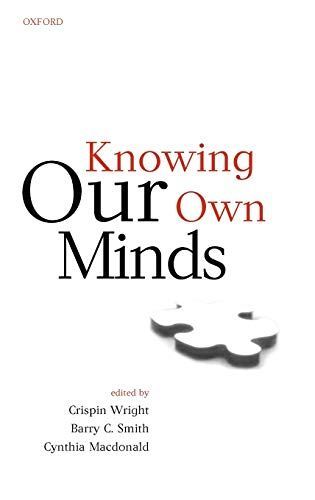
Knowing Our Own Minds
Self-knowledge is the focus of considerable attention from philosophers: Knowing Our Own Minds gives a much-needed overview of current work on the subject, bringing together new essays by leading figures. Knowledge of one's own sensations, desires, intentions, thoughts, beliefs, and otherattitudes is characteristically different from other kinds of knowledge, such as knowledge of other people's mental attributes: it has greater immediacy, authority, and salience. The first six chapters examine philosophical questions raised by these features of self-knowledge. The next two look atthe role of our knowledge of our own psychological states in our functioning as rational agents. The third group of essays examine the tension between the distinctive characteristics of self-knowledge and arguments that psychological content is externally--socially and environmentally--determined.The final pair of chapters extend the discussion to knowledge of one's own language. Together these original, stimulating, and closely interlinked essays demonstrate the special relevance of self-knowledge to a broad range of issues in epistemology, philosophy of mind, and philosophy oflanguage.